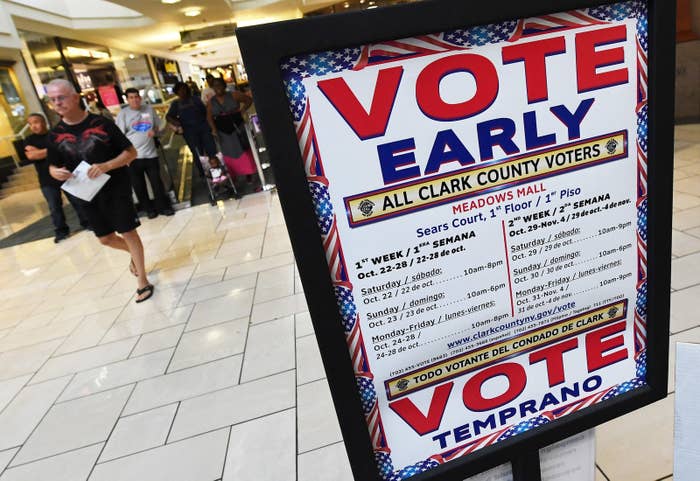
WASHINGTON — In what is at least a temporary setback for Democrats, a federal judge on Saturday afternoon denied their request to hold the Republican National Committee in contempt for alleged violations of a longstanding court-enforced agreement that the national party will not engage in "ballot security" measures.
US District Court Judge Michael Vazquez declined to extend the consent decree — currently due to expire in December 2017 — as the Democratic National Committee had sought. He did, however, note that the time to put together evidence in the case had been very limited and stated that "the Court will hear the parties after Election Day" once additional evidence can be secured in the challenge.
The consent decree, in place since 1982 and amended as recently at 2009, bans the national party from combating voter fraud at polling places.
In October, the Democratic National Committee went to court, asking for the RNC to be held in contempt for violating the order. Much of the evidence cited by the Democrats related to statements from senior members of the Trump campaign and efforts by state party chairs who also are member of the RNC. Additionally, the Democrats presented allegations relating to poll monitors at early voting locations in Nevada.
"[T]he critical issue ... [is] whether the RNC has in fact acted in coordination with the Trump Campaign to prevent voter fraud," Vazquez wrote of the first area of Democrats' evidence, concluding that "the DNC has been unable to demonstrate such coordination."
He noted that the timing of the motion meant that there had only been very little exchange of evidence thus far, but concluded that "the discovery thus far produced by the RNC reflects that it is not working with the Trump Campaign on ballot security measures."
As to the state party chair argument, however, Vazquez was even less convinced, writing of the Pennsylvania and Michigan state party chairs, "The Court finds that the DNC has not demonstrated that either were acting in their roles as RNC members."
Finally, as to Nevada, Vazquez concluded that, while the DNC "presented credible evidence" that the RNC "is engaged in poll observations in Nevada," he was not convinced that the DNC presented sufficient evidence — at this time — to show that the observation crossed into conduct that would be prohibited as a "ballot security" measure.
Although the Democrats lost the fight on Saturday, Vazquez made it clear in the formal order denying the contempt request and the request to extend the consent decree immediately that he is by no means done with the case.
In a footnote, he wrote:
"The Court is not limiting post-election discovery requests to the events described in Nevada. The Court is aware that the reason that the evidence is so limited is due to the time constraints that the parties were operating under due to the approaching Election Day and, as a result, the limited discovery that could reasonably be provided in such a short period. Although the Court is denying Plaintiff’s current motion for injunctive relief, for a contempt finding, and for sanctions, nothing in the Court’s opinion prohibits Plaintiff from making similar motions in the future if, in its view, it believes that such motions are warranted in light of additional facts discovered during post-election discovery."
